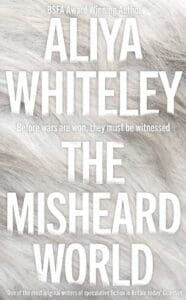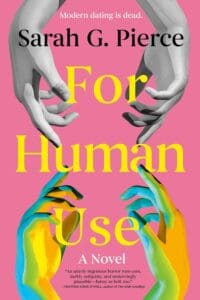
Synopsis
Traduttore, traditore: An act of translation is always an act of betrayal.
1828. Robin Swift, orphaned by cholera in Canton, is brought to London by the mysterious Professor Lovell. There, he trains for years in Latin, Ancient Greek, and Chinese, all in preparation for the day he’ll enroll in Oxford University’s prestigious Royal Institute of Translation—also known as Babel. The tower and its students are the world’s center for translation and, more importantly, magic. Silver-working—the art of manifesting the meaning lost in translation using enchanted silver bars—has made the British unparalleled in power, as the arcane craft serves the Empire’s quest for colonization.
For Robin, Oxford is a utopia dedicated to the pursuit of knowledge. But knowledge obeys power, and as a Chinese boy raised in Britain, Robin realizes serving Babel means betraying his motherland. As his studies progress, Robin finds himself caught between Babel and the shadowy Hermes Society, an organization dedicated to stopping imperial expansion. When Britain pursues an unjust war with China over silver and opium, Robin must decide . . .
Can powerful institutions be changed from within, or does revolution always require violence?
Review
I’ve been intrigued by this book for a long time. I read The Poppy War, so I knew R.F. Kuang could write – like really write. But still I waited. I was…intimidated. I’d seen comments by some that Babel was ALOT. Reviews were all over the place, and even the cover threw me off a little in some ways.
I wish I’d read this book earlier, but in many ways I don’t know if I would have felt the same if I’d read this before THIS moment in time. Here’s what I’ll say, and this is high praise – this book was deeply unsettling.
Unsettling, but there was throughout it all, a glimmer of hope.
In the first half of the book, it seems like a fairly straightforward fish-out-of-water academia tale. I felt echoes of Harry Potter, M.L. Wang’s Blood Over Bright Haven, and even a little bit of Patrick Rothfuss’ The Name of the Wind as Kuang guided us through the first few years of Robin and his friends term at Oxford. It’s comfortable. It’s expected. It’s…nice.
But even as Kuang is taking us towards the turn, there are signs of trouble, signs of distress. We, as the audience, are just waiting for Robin and his friends to wake up…to see what the empire is doing to them. Eventually, it comes.
I think this is the point that probably turned some people off, and I could see why. When Robin finally sees the world for what it is and embarks on a new life with a new perspective, there is a sense of unease. On some levels it feels like they are all on a collision course, but the timing is off. When will they be caught? What’s going to happen? It’s like they know what could happen, but it’s all so unpredictable at the same time.
And I think that unease…that’s where Kuang really stood out with this book. The easy thing would have been for our characters to go from Point A to Point B to Point C with action, dialogue and adventure along the way. But, that isn’t what happens and its all weird and muddled. Robin screws up. His friends make mistakes. But somehow there is a strange forward momentum that pushes them all to a tragic end.
I love Les Miserables. Of course, the cat-and-mouse between Javert and Valjean is fantastic, but I think the students at the barricades is wonderful and heartbreaking. R.F. Kuang takes that and dials it all the way up. In Les Mis, the students have very little leverage. In the final quarter of the book, Robin engineers a situation similar, yet so different it has to go to a fascinating and woeful conclusion. And yet…and yet…there is a small amount of hope that we have at the very end.
The book is partly written as a narrative and a history book with footnotes scattered throughout. As a history teacher, it kinda charmed me a little with the framework that Kuang used, but I know this was a little divisive for some as well.
I questioned myself throughout reading this. The pacing felt slow at times. The narrative was sometimes unreliable. The action was jarring and our characters’ ethics was troubling. But when I reached the end, I knew it was all intentional. The unease throughout kept me on my toes and kept me going. Just like when you have a minor chord in a musical piece, you’re waiting for that resolution…the quiet unease played at my emotions throughout until I reached the final page and was finally able to breath out.
Well done. This is an important book for the time we live in and I’m glad I read it now.









Leave a Reply